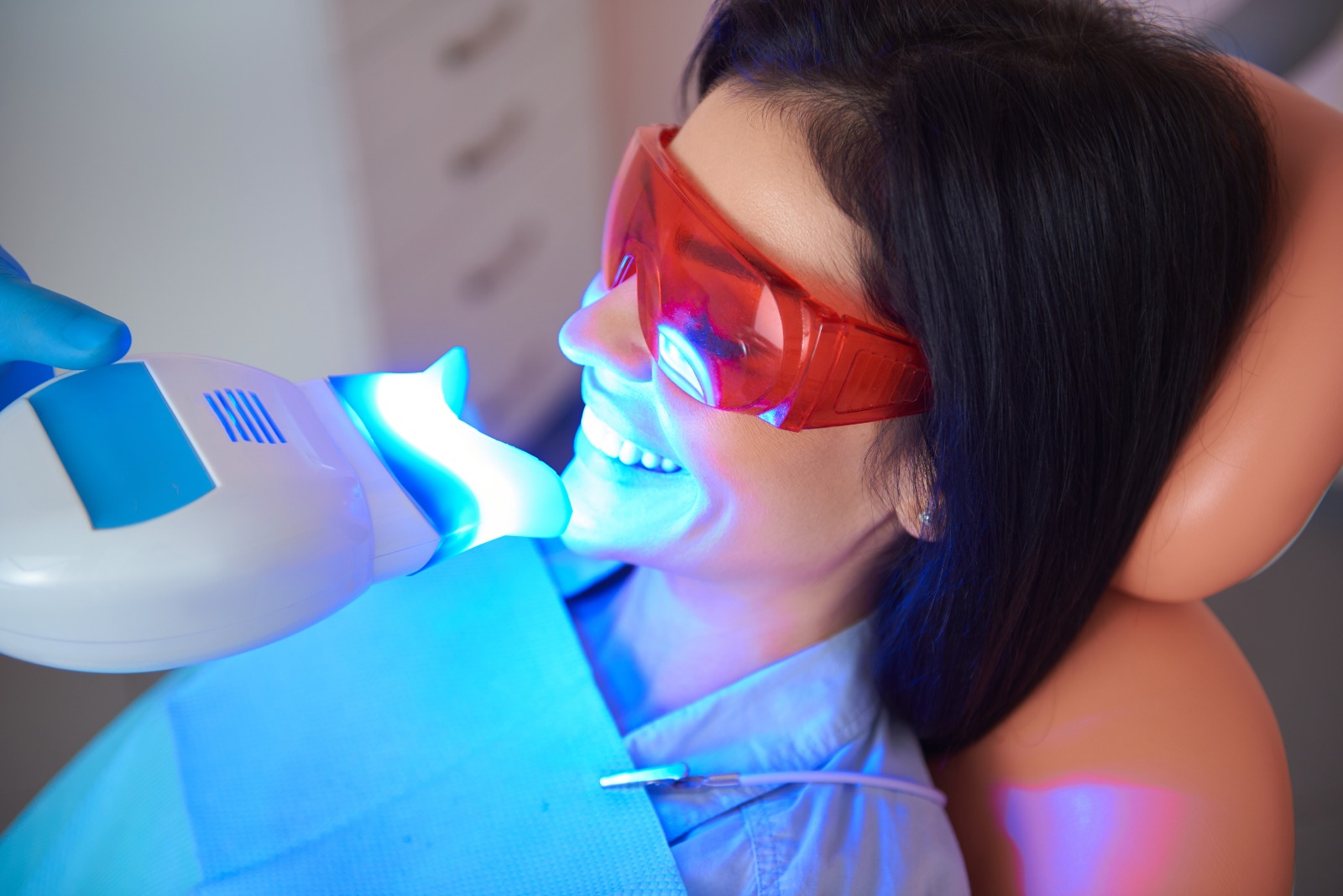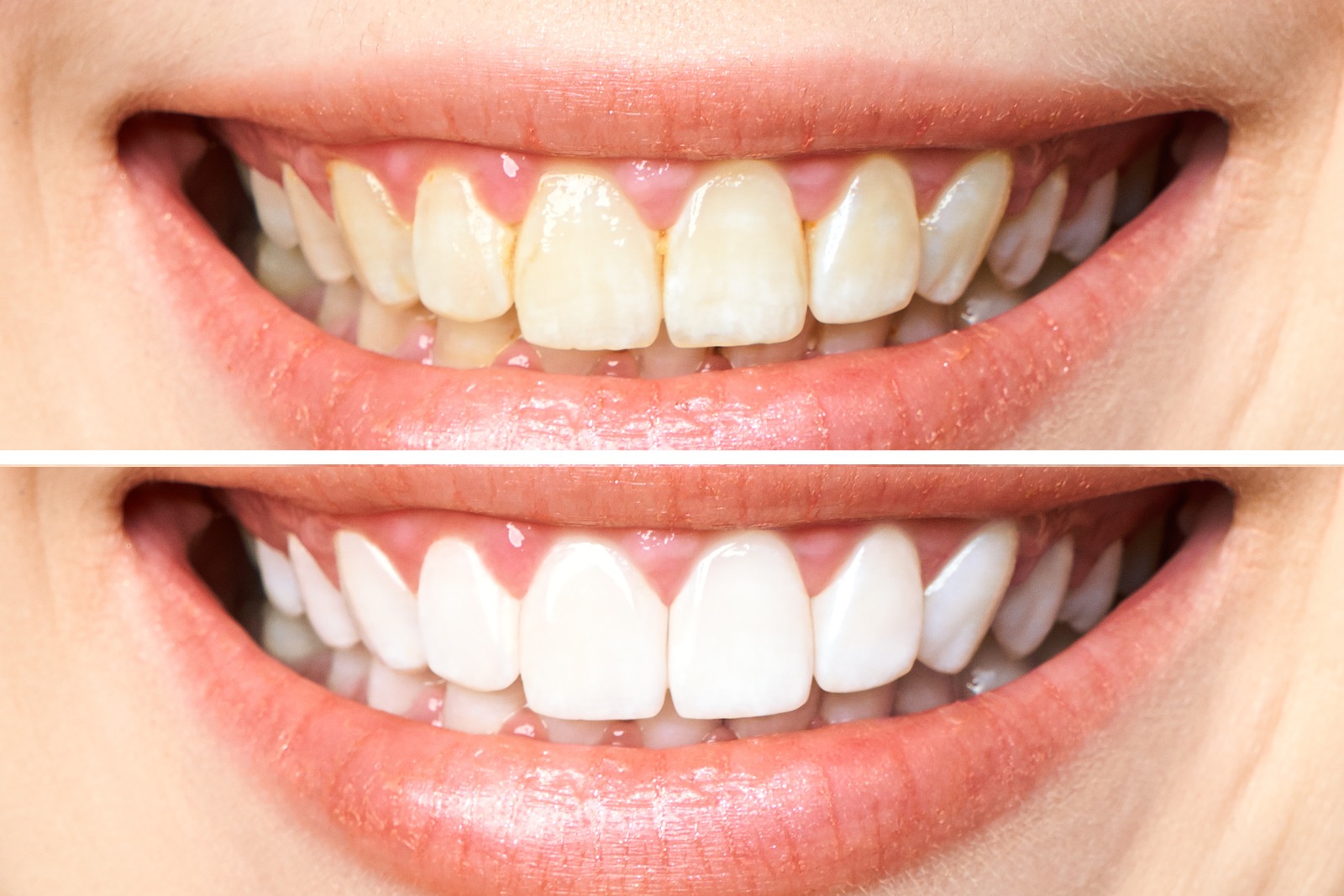What is dental whitening?
Teeth whitening lightens the shade of the teeth. This technique involves using hydrogen peroxide. This bleaching agent crosses the enamel and penetrates the level of the dentin, which allows the tooth to be lightened.
In fact, teeth whitening will NEVER give a whiter shade than your natural tooth.
How is dental whitening carried out?
Since 2012, the European Union has limited the concentration of hydrogen peroxide to 6% in dental offices and to 0.1% for products sold in supermarkets and pharmacies. In Turkey, we are not subject to this constraint. However, be sure to carry out this type of intervention by dental professionals with the necessary safety standards (wearing of ultra-violet protective glasses in particular and laser / ultra-violet lamp checked regularly). < / em>
As you can see, only care given in a dental office is really effective.
Products sold commercially or used in “smile bars” by non-professionals have more of a placebo effect on the patient than anything else.
Note that there are 2 uses of dental whitening: for aesthetic care (with a hydrogen peroxide level limited to 6%) and for medical care, such as to treat the whitening of devitalized teeth (and in this case , the rate of hydrogen peroxide can go up to 35-40%).
Once the hydrogen peroxide is applied to the teeth, a laser is applied to enhance the action of the gel via a photochemical action.


